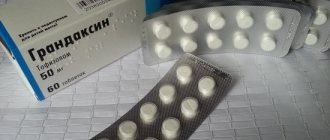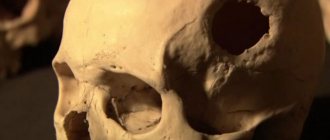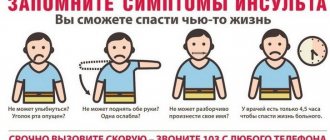Stroke is a common and dangerous disease. Represents pathological changes in the brain. It occurs due to problems with blood circulation and has irreversible consequences. One of the causes of stroke is alcohol abuse - strong alcoholic drinks, wine, beer.
There was a time when the disease was called apoplexy from the Greek apoplexia (to stun with a blow). It develops suddenly, brain cells die instantly, and main physiological functions are disrupted.
The disease has many causes: obesity, heredity, smoking, lack of physical activity. Alcohol abuse increases the risk of developing and exacerbating any disease.
A stroke can occur not only in a chronic alcoholic, but also simply from a single ingestion of a large amount of alcohol.
There is controversial suggestion that dry red wine reduces the risk of stroke. This is true, but the drink must be of high quality, without added sugar and only one glass. Not everyone can afford such wine. We are not talking about abuse in this case.
Brain stroke from alcohol occurs more often in people who drink alcohol regularly, in large quantities and for a long time. A stroke aggravated by alcohol destroys a person quickly.
Relative safe amount of alcohol per week
What is the harm?
Regular drinking can lead to serious problems. Alcohol causes:
- development of cardiovascular diseases: heart disease, thinning of vascular walls; atherosclerosis, blood clot formation;
- loss of control of well-being and sensations, which does not allow a person to identify the symptoms of the disease;
- increased cholesterol levels in the blood, the formation of fatty plaques on the walls of blood vessels, and excess weight gain;
- increased blood pressure and blood sugar, which is a factor in the development of stroke.
A person who is a patient of a neurologist knows that stroke and alcohol are a dangerous combination. These risk factors can be superimposed on an existing disease, which can trigger a stroke.
When talking about people suffering from strokes, it is worth understanding that alcohol can be the main cause of a person’s illness. But we are talking about regular alcohol consumption, which can develop into drunkenness. If we are talking about alcoholics, then this hobby can bring the disease closer by 10-15 years.
If a person who has been exposed to a stroke continues to drink after the illness, then his death may occur in 2-3 years.
Alcohol can dilate blood vessels, but over time they will begin to narrow again at lightning speed. And those who drink frequently already have problems with their blood vessels, as they dry out and become fragile.
But the worst thing for a person who has suffered a stroke is alcohol on holidays, when a person drinks a little and rarely. This happens for the following reasons:
- Due to a small dose, a sharp drop in pressure can occur.
- Alcohol damages blood vessels.
“How many times have they told the world…” about the dangers of excessive drinking, but a person still finds reasons, reasons and excuses and continues to drink. Meanwhile, alcohol is one of the main causes of strokes.
Moreover, regular drinking of alcohol “rejuvenates” this disease by 10 - 15 years. And such behavior after already suffering a stroke leads to death in 2 - 3 years. A drinking person loses control and cannot adequately assess his condition.
Due to insufficient blood supply, the vessels dry out and become fragile. If you subject an old, dry rubber hose to constant stress, it will very quickly become covered with cracks. The same thing happens with the blood vessels of the brain. Any load on them can cause repeated hemorrhage and end tragically.
All of the above factors are not a complete list of troubles for a person who continues to drink alcohol after a stroke.
Here are a few more points:
- risk of developing cardiovascular diseases (atherosclerosis, blood clots, thinning of vessel walls, heart disease);
- increased blood pressure and blood sugar, resulting in ischemic stroke;
- high cholesterol, fatty plaques on the walls of blood vessels, excess weight.
All these factors, together or separately, are superimposed on existing diseases and very quickly bring a sad outcome closer.
- high-quality cognac is the healthiest drink containing alcohol additives. The required daily intake is fifty grams. Daily consumption of a small amount of this drink helps improve brain performance and normalize blood pressure;
- dry red wine is an excellent choice to provoke high-quality stimulation of the heart muscles and the production of additional substances in the blood. The daily amount of wine consumed should not exceed 150 grams.
Symptoms of a stroke
Alcohol reduces sensitivity, so disorientation in space - the main symptom of a stroke - may go unnoticed. Then you should pay attention to other signs of a stroke:
- sharp pain with throbbing in the head;
- subsequent nausea and vomiting;
- eye irritation from bright light;
- breathing problems;
- increased heart rate;
- paralysis on one side of the body.
With a hangover, a person experiences identical symptoms of malaise. Without professional medical help, it can be difficult to differentiate these conditions, so in order to avoid a stroke, it is necessary to urgently hospitalize the patient.
Drinking a drink to relieve symptoms after a hangover can aggravate the current condition and lead to death.
Alcoholic drinks after apoplexy
The issue of using alcohol after a stroke is controversial among doctors and scientists. Every year, conflicting scientific papers on the use of alcohol in stroke are published. Let us express the point of view of neurologist E.R. Lebedeva about whether it is possible to drink wine after a stroke. Her research has examined the effects of alcoholic beverages on stroke patients and people with risk factors for apoplexy. As a result of the study, the following pattern emerged:
- With the abuse of alcoholic beverages, the risk of ischemic strokes increases, while the proportion of hemorrhages in the brain and subarachnoid space increases.
- Beer and strong alcoholic drinks increase blood pressure. Red wine is considered an acceptable type of alcoholic beverage. When consumed in moderation, red wine increases HDL (“good cholesterol”). HDL removes “bad” cholesterol from the blood. In addition, wine has an antithrombotic effect. This reduces the production of fibrinogen, which makes up the platelet, and reduces the ability of platelets to stick together. Red wine in moderation protects blood vessels and improves blood circulation to the brain. However, red wine also has negative effects. It manifests itself in increased blood pressure and an increase in the amount of triglycerides (TGL) in the blood.
How much wine is acceptable to drink after a stroke?
Is it possible to drink red wine after a stroke? After the rehabilitation period, red wine can be taken in limited quantities.
A small amount of wine is allowed for a patient after a stroke, if the patient is able to withstand the dose
A dose of 100 to 200 g of natural dry grape wine per day has a positive effect on the blood vessels of the brain. A dose higher than this can harm a patient who has suffered a brain catastrophe. A patient after a stroke can drink no more than 7 glasses of wine per week.
When is wine contraindicated?
Drinking alcohol after apoplexy is prohibited in the following cases:
- in the acute period;
- when taking medications;
- a person unable to adhere to the allowed dose;
- former alcoholics.
Patients after a stroke suffer from insomnia or depression, for which they take medications that affect the nervous system. Drugs for the treatment of residual effects after a stroke are incompatible with alcohol.
When is drinking alcohol strictly prohibited?
It has been proven that drinking alcohol is considered one of the factors contributing to the occurrence of cerebral stroke. Alcoholic drinks increase blood pressure and also dilate and then sharply constrict blood vessels. This may cause hemorrhages.
- It is very dangerous to drink alcohol after a stroke; it can lead to serious consequences and thus provoke, for example, a second stroke.
- It is forbidden to drink alcohol for people whose joint mobility, impaired due to changes in the integrity of the brain vessels, has not been fully restored.
- Alcohol consumption is strictly prohibited in patients coded for chronic alcoholism. Here we are even talking not so much about the cardiovascular accidents themselves, but about getting rid of a bad habit.
The main effect of returning to pre-illness habits is the possibility of increasing the risk of another fatal stroke. It is very difficult for alcoholics to control the dose of consumption; such individuals lack self-control. If they have to use again, they will not be stopped. Unfortunately, the already weakened nervous and cardiovascular system will not be able to withstand significant alcohol intoxication, which will cause serious complications.
Lacunar stroke
Lacunar stroke is a type of ischemic stroke of the brain, which in most cases occurs against the background of arterial hypertension. Caused by damage to perforating arterial blood vessels of the brain.
As a result of pathological changes, specific small pathological foci appear deep in the brain tissue (usually in the white matter), which are called lacunae. According to statistical data, lacunar stroke manifests itself in 16-26% of cases of ischemic type of damage to brain tissue.
In addition to this kind of prevalence, this disorder is prone to frequent relapses, the number of which is 12%. Despite the relatively satisfactory condition after a lacunar stroke, the frequent occurrence of repeated strokes with the formation of lacunae leads to a specific complication - the lacunar state, which is the basis for the development of hypertensive encephalopathy and vascular dementia.
Registration of disability
The disability group is assigned by MSEC. If after a stroke you are completely or partially unable to work and the rehabilitation period is slow, you must contact your doctor and take a referral for an examination. In addition, you will need to take many tests and undergo a large number of examinations. All this can be done in a hospital if the patient cannot do it independently in the clinic.
Read also: Emetic drugs without prescriptions
If a person has already been discharged from the hospital in order to formalize the disability, the relatives themselves have the opportunity to negotiate with the local doctor, after which the patient is hospitalized for further examinations necessary for presentation for examination. If the patient is ambulatory, he can take all referrals for examinations from the attending physician at the clinic at his place of residence.
In addition, you will need a referral for a medical and social examination. It will be issued at the district clinic after the commission has reviewed the medical history and examinations completed. The document must bear the signature of the chief physician of the clinic and the seal of the medical institution.
After a stroke, disability is not always granted, but only if some part of the brain has not fully recovered, speech, coordination of movement and other functions are impaired. If disability is granted, every year it is necessary to undergo re-examination, present the results of fresh tests and recent examinations. Only disabled people of category 1 have the right to undergo re-examination once every 2 years.
Treatment of ischemic cerebral stroke
For several days, a patient with a right-sided ischemic stroke must be in a horizontal position with his legs elevated. 24-48 hours after the patient is taken to the neurology clinic, he is turned in bed and his airways are cleared. In case of prolonged vomiting, a nasogastric tube is inserted into the patient's stomach, and if swallowing is difficult, parenteral nutrition is prescribed, with nutrition entering the body intravenously. When treating strokes of the right half of the brain, effective medications and non-drug agents are used:
- The doctor constantly monitors blood pressure and, if it increases, prescribes antihypertensive substances.
- In the acute period, patients with ischemic stroke are prescribed Gordox and Contrikal.
- Even with the initial manifestations of insufficient blood supply to the brain, the patient is administered antiplatelet agents.
- In order to restore the functioning of nerve cells in the brain, drugs that have a neuroprotective effect are prescribed.
- To restore blood flow through the arteries of the right hemisphere of the brain, thrombolytic drugs are prescribed.
- When the patient's condition improves, speech therapists begin to work with him.
Right-sided ischemic stroke
An ischemic stroke on the right side of the brain occurs as a result of a thrombus or embolus blocking the arteries supplying blood to the right hemisphere, and in addition, there is a pronounced vasospasm in this area. This circulatory disorder in the right hemisphere can be facilitated by hypertension with hypertensive crises and atherosclerosis of the brain vessels.
Right-sided hemorrhage in the brain can be the result of pathological changes in the right carotid and vertebral arteries, through which oxygen enters the right hemisphere with the blood. When small arteries are damaged, lacunar hemorrhage in the brain can occur - lacunar stroke. Right-sided lacunar ischemic stroke develops over time in patients suffering from diabetes mellitus and hypertension. General cerebral manifestations are not expressed enough.
Fifty percent of patients have weakness of the left arm and leg, and there is loss of sensation in the left side of the face. In 1/3 of patients, there is a loss of pain sensitivity and the ability to distinguish the shape and temperature of an object by touch. In every tenth patient, lacunar hemorrhage in the brain is expressed by sudden dizziness and the inability to move without the help of others.
Heart failure during stroke is a sign that indicates a very negative prognosis for the disease. Example - a person with a combination of extensive stroke and stage 3 heart failure has no more than a few days to live.
Is it possible to drink alcohol after an attack of illness or not?
Indeed, stroke and alcohol may be closely linked. However, according to experts, high-quality alcohol (naturally, in small doses) can have a positive effect on the body even after a cerebral infarction. But there are situations when its use is unacceptable.
When is it strictly prohibited?
Ethyl alcohol can serve as a powerful catalyst for relapse of pathology in the following situations:
- entering the body during treatment and rehabilitation after a stroke (from six months to a year);
- taking medications that are incompatible with alcoholic beverages;
- alcohol dependence or its prerequisites.
Important! With heavy libations, intoxication of the body occurs. If the drink is of poor quality, irreparable harm will be caused to the patient. Our website contains information about the signs, course and prevention of stroke
Also about the reasons why a stroke affects a child and people under 30 years old and how long they live with damage to the right side and other consequences, how many attacks a person can suffer.
When is it permissible to drink cognac, non-alcoholic beer, red wine and others?
Alcoholic drinks should only be of natural quality without the admixture of fusel oils and other synthetic additives. A positive effect on the body is possible only with small doses. The physiological dose of ethyl alcohol is 15-30 grams per day.
When recalculated for common drinks, the following figures are obtained:
- wine, champagne – 100 g for women and 200 g for men;
- vodka, cognac – 30 and 50 g, respectively;
- beer - 330 and 500 g, respectively.
Thus, drinking a bottle of beer for a healthy man once every 24 hours does not lead to any special physiological problems. But for those who have suffered a stroke, the consequences will be different.
For example, dry red wine made from real grapes will not affect brain processes, while it thins the blood quite well, dilating blood vessels, so in this case, stroke and alcohol are compatible. However, white wine will be contraindicated due to the opposite reactions of the body. Vodka and cognac are much stronger than wine, which increases blood pressure without reducing vascular tone.
Attention! Strong drinks are contraindicated for people who have had a stroke.
Beer and champagne do not have beneficial properties, instead constricting blood vessels in the brain. When taking them, there is a high risk of increased blood pressure. Non-alcoholic beer is also not recommended; the gases it contains can have a bad effect on hematopoiesis.
In any case, drinking alcohol will not be a useful pastime. And if a person who has suffered a stroke still does not want to give up alcohol, he should consult with his doctor. No feast can be more valuable than human life and health.
Consequences of abuse
The hemorrhagic type of stroke is always accompanied by the development of bleeding inside the brain. This occurs due to a violation of the strength and elasticity of the vascular walls located in the brain. In addition, oxygen deficiency and nutrient deficiency occur in the tissues, which is explained by the narrowing of the lumen.
Patients who are at the stage of rehabilitation after a stroke need to understand how alcohol will affect the body as a whole and the functioning of individual organs and systems.
Are stroke and alcohol compatible? The consequences are of interest to many patients. If we are talking about a large amount of alcohol, then this can cause various pathological processes, including:
- Destruction of brain centers that are responsible for the processes of narrowing or dilation of blood vessels.
- Increased pressure in the arteries.
- Reduced blood flow, blockage of blood vessels and possible recurrence of stroke.
In addition, the consequence of drinking alcohol after a stroke can be an increase in cholesterol levels in the blood, which significantly increases body weight. If you drink alcohol uncontrollably and in large quantities, you can get a second stroke, the course and complications of which will be much more severe than in the first case.
The compatibility of stroke with alcohol is very relative.
Is it okay to drink alcohol after a stroke?
The patient may be at risk of having a second stroke if he does not stop drinking and quit the bad habit of smoking. If you cannot do without alcohol, then it is better to give preference to dry red wine. It is permissible to take about 30 g of pure alcohol per day. This amount corresponds to one glass of wine. If a person who has had a stroke drinks heavily, the brain stroke may recur within a short time. Sick people are prohibited from drinking any alcohol-containing drinks other than wine, as their consumption can lead to fatal consequences. A person after a stroke is already weakened. His blood vessels are not in the best condition, you should not put additional pressure on them, it is better to take care of yourself and give up alcohol. What definitely won’t hurt the sick is clean water instead of vodka.
Alcoholic drinks increase blood sugar levels and the functioning of internal organs is disrupted. A person runs the risk of gaining extra pounds, since alcohol whets the appetite and is usually consumed along with high-calorie foods. Cholesterol, present in excess in blood vessels, is deposited on their walls. Drinking alcohol can also cause thrombosis.
The patient may well be at risk of a repeat hemorrhagic attack; his brain vessels are weakened and another rupture could easily occur. The likelihood of a stroke becomes higher the more a person drinks; an excess of alkaloids and excessive intoxication are dangerous. It must be remembered that there is a sufficient amount of low-quality alcohol on store shelves, so before purchasing you need to carefully study the composition on the label, including red wine.
A second stroke can occur within 2 years after the first attack. It happens often. As a result of another stroke, the likelihood of loss of performance increases significantly. Complications in the form of paralysis are quite likely.
It is worth saying that cigarettes and alcohol are not compatible. The blood vessels suffer even more if a person not only drinks, but also smokes a cigarette. Under the influence of cigarette smoke, blood vessels contract and the blood becomes thicker. Due to alcohol, the blood vessels first dilate and then sharply narrow, which can lead to rupture.
Sources
- https://narcoff.com/alkogolizm/vliyanie/alkogol-i-insult
- https://telemedicina.one/sosudy/alkogol-posle-insulta.html
- https://ponchikov.net/health/zabolevaniya-mozga/527-mozhno-li-pit-alkogol-posle-insulta.html
- https://kardiodocs.ru/brain/insult/alkogol-prichina-insulta-est-li-svyaz.html
- https://insultovnet.ru/posledstviya/mozhno-li-pit-alkogol-posle-insulta.html
- https://GolovaLab.ru/insulto/reabilitatsiya/vino-chaj-i-soki-posle-insulta.html
- https://sosudoved.ru/mozg/alkogol-posle-insulta.html
Stroke and bad habits
Stroke is an acute disorder of cerebral circulation, a dangerous disease that annually claims millions of lives around the world. Paradoxical as it may seem, a person often “organizes” this serious illness for himself with his own hands. After all, stroke is a lifestyle disease, and many bad habits can significantly increase the risk of developing this pathology. Thus, the main everyday factors that significantly increase the likelihood of developing strokes include smoking, alcohol and addiction to energy drinks.
Stroke and smoking
It is currently believed that the risk of stroke in smokers is approximately 2 times higher than in non-smokers, even if nicotine addicts smoke only up to 5 cigarettes per day. All other things being equal, smokers develop a stroke on average at the age of 58 years, while non-smokers risk experiencing this disease at an average age of 67 years.
The main damaging factor when smoking is nicotine - this substance constricts blood vessels. With regular smoking, persistent vascular stenosis develops with a violation of their elasticity and a decrease in the strength of the vascular wall.
Smoking also leads to increased blood pressure, which is especially dangerous for people suffering from hypertension and at risk of developing a stroke.
Another effect of smoking is an imbalance of lipids in the blood towards the predominance of “bad” cholesterol. Cholesterol, deposited on the walls of blood vessels, forms atherosclerotic plaques that impede the free flow of blood.
Under the influence of some components contained in tobacco smoke, which smokers inhale, the viscosity of the blood may slightly increase, which contributes to the formation of blood clots.
All this together leads to cerebral circulation disorders and can cause ischemic or hemorrhagic stroke. As a result, smokers die from stroke not only more often than their non-smoking peers, but also 7-10 years earlier.
Stroke and alcohol
It is believed that alcohol, taken infrequently and in small doses, somewhat reduces the risk of ischemic stroke by dilating blood vessels. However, even small doses of alcohol, if consumed frequently, on the contrary, increase the risk of stroke (primarily hemorrhagic) by 2-3 times. At the same time, doses that negatively affect the state of the cardiovascular system are considered to be 2 units of alcohol per day or more. A dose containing 10 grams of pure ethanol is taken per unit - this is 30 grams of vodka, 50 grams of liqueur or 150 grams of dry wine. Chronic alcohol consumption increases blood pressure and blood sugar levels - two of these factors are determining for the development of ischemic stroke.
As shown by studies by scientists at the University of Lille (France) involving 540 people who suffered from strokes, in people who frequently drink alcohol, a stroke occurs on average at 60 years of age, and in people who do not drink, at 74 years of age. The likelihood of death within 2 years after a stroke in people who drink alcohol is 2 times higher.
In general, the risk of developing various diseases of the cardiovascular system in people who drink is 4-5 times higher.
Stroke and energy
One of the main components of all energy drinks, the most common of which is coffee, is caffeine. Caffeine can significantly increase blood pressure, excite the nervous system, increase anxiety and provoke tachycardia, increasing the load on the cardiovascular system. Caffeine also helps reduce blood levels of important microelements such as iron and calcium.
According to research by employees of the Faculty of Medicine at Utrech University (Netherlands), up to 10% of all cases of aneurysm rupture and hemorrhagic stroke are associated with excessive consumption of caffeine-containing drinks. And if coffee lovers, for some reason, sharply increase the daily dose of this drink, then the risk of developing strokes for them increases by 2 times.
https://youtube.com/watch?v=J7rMe20aPNw
Is it possible to drink alcohol after a stroke and what are the consequences?
The question of whether it is possible to drink alcohol after a stroke is often asked to doctors. These concepts have a certain connection with each other and relate to vessels. It is known that a stroke is a sudden disruption of blood circulation in the vessels of the brain, which often ends in hemorrhage. This phenomenon can subsequently cause various irreversible consequences of brain activity, even paralysis. Alcohol, in turn, greatly affects the condition of blood vessels, and is capable of sharply expanding them and then narrowing them. However, even if there are no negative consequences after a stroke, and the patient’s condition has returned to normal, it is still worthwhile to understand in more detail the issue of the harmlessness of drinking alcoholic beverages in the future.
Is it okay to drink alcohol after a stroke?
As you know, alcohol itself is already harmful to blood vessels. And a stroke often occurs due to atherosclerosis or weakened vessel walls.
This means that there is a risk of repeated hemorrhage with the next sharp jump in blood pressure, because the first stroke is a clear signal of a weakened vascular system.
When the pressure increases, the vessels cannot withstand it and burst. What can we say about drinking alcohol, which greatly increases blood pressure.
Drinking alcohol in large doses after a stroke can lead to:
- damage to the brain areas responsible for the tone of the vascular system;
- pressure surges;
- depletion of arterial and venous walls;
- impaired vascular response;
- blockage of vascular lumens;
- increased cholesterol levels and weight gain;
- excessive blood clotting, and as a result, thrombosis;
- thrombosis of cerebral vessels.
And for completely healthy people, alcohol in large doses carries certain harm, let alone a person who has experienced a cerebral hemorrhage.
Of course, there are cases when alcohol is useful after a cerebral hemorrhage, but the doctor’s opinion and taking into account some nuances are important here
When is alcohol good for you?
In some cases, even doctors recommend drinking a small amount of low-strength wine. It is advisable to drink natural red wine. Then the blood thins moderately, the blood vessels dilate, and there are benefits for the digestive system. It is generally accepted that dry red wine is an almost completely safe alcoholic drink for stroke patients
The quality of the wine consumed must be high; this is extremely important. You should never drink fortified wine
Drinking alcohol after a stroke is possible. All chronic hypertensive patients need to completely abstain from alcohol, and it is advisable to drink even wine no more than 8 times a month in the amount of 150 g.
If you adhere to these rules, then wine will only benefit:
- the condition of blood vessels will improve;
- ischemia is prevented;
- the likelihood of developing thrombosis and atherosclerosis is reduced;
- The consistency of blood plasma returns to normal.
In what cases are alcoholic drinks completely contraindicated after a stroke?
Patients who have suffered a severe stroke and have negative consequences, as well as those who have an increased likelihood of recurrent hemorrhage, should not drink alcohol at all.
But after the rehabilitation period, when there are no obvious threats to the body and the course of drug treatment is completed, the doctor can express his opinion about the patient’s possibility of drinking alcohol in the future.
Prevention
The main method of preventing stroke is maintaining certain body parameters at normal levels. We are talking about blood pressure, cholesterol levels, as well as giving up bad habits such as drinking alcohol and smoking.
Are concepts such as stroke and alcohol compatible?
If you have had one stroke and recovered, it is important to take preventive measures to avoid a recurrence. To do this, follow these rules:
- give up bad habits
- visit your doctor for a routine checkup
- stick to your diet
- engage in light physical activity and sports activities
- train your memory and logic
- avoid stress and physical strain
- treat chronic diseases, inflammations
- go to the hospital when the first symptoms appear
Also, during prevention, it is recommended to take prescribed medications, use traditional medicine methods, and visit a massage therapist and a swimming pool. But the main thing is to avoid alcohol in large quantities, especially if the doctor did not recommend it even in minimal doses.
Contraindications
Alcohol should not be taken while taking medications
In addition to the positive properties of some alcohol-containing drinks, there are factors with which it is strictly forbidden to combine alcohol consumption:
- drinking alcohol during treatment using pharmacological drugs or during the rehabilitation period;
- if the patient has congenital joint mobility;
- the integrity of blood vessels is damaged;
- genetic predisposition of the patient to chronic alcoholism.
A stroke from alcohol can occur if the patient ignores all the prohibited factors listed above and drinks, violating the quantitative norm.
First aid for alcoholic stroke
If you notice signs of a stroke in a man (or woman), you urgently need to take a number of the following actions:
- call emergency medical assistance;
- put the patient to bed and limit his movements, exclude going out, and do not allow him to drive;
- avoid drinking alcoholic beverages;
- reassure the injured person and do not panic yourself.
What should not be done under any circumstances, so as not to aggravate the condition of the injured person and not to blur the clinical picture for making a diagnosis:
- drink water and eat food;
- Avoid the use of painkillers and other medications.
Mechanism of influence of alcohol
Alcohol consumption leads to the development of a number of physiological reactions, which include:
- Expansion of the vascular bed - the effect depends on the dose of alcohol and the type of alcoholic drink. Wine in small doses has a beneficial effect on blood vessels. Stronger drinks, as well as the intake of significant amounts of alcohol, lead to subsequent spasm of the arteries and an increased risk of developing vascular complications.
- Impact on a number of receptors in the cerebral cortex and subcortical structures, which results in a feeling of euphoria or intoxication.
- Changes in the rate of metabolic processes, which primarily affects hepatocytes (liver cells).
When large doses of alcohol are consumed in the body, incomplete decomposition products (acetaldehyde) accumulate, which have a pronounced toxic effect on various tissues, including the structures of the nervous system and blood vessels.
Important! One dose (“drink”) of alcohol, which is allowed for consumption by the World Health Organization, is equivalent to 30 ml of pure alcohol
What to drink, how and why to drink?
Does this mean that people with stroke are prohibited from drinking ethyl alcohol, and stroke and alcohol are incompatible? No, that's not true.
Is it possible to drink alcohol after a stroke? The answer is twofold. In the first few months, it is really better to stop drinking alcohol: there is a high risk of relapse and secondary cerebrovascular accident. During this period, active drug treatment is carried out.
You can return to drinking ethanol after six months or so. It makes no sense to completely give up alcohol, since ethanol and other components of alcoholic beverages also have a positive effect on the cardiovascular system and the body as a whole, but what?
- In small quantities, ethanol, due to its ability to have a dual effect on blood vessels, trains veins and arteries (affects blood vessels). They become more elastic and quickly restore their tone.
- The blood composition is normalized. It becomes more fluid.
- Ethyl alcohol affects blood pressure, reducing it. However, alcohol at high blood pressure, especially if we are talking about hypertension and stage 2-3 hypertension, is absolutely contraindicated.
- Alcohol products increase the body's resistance to infections and normalize the functioning of the immune system.
- Lipid metabolism is normalized, ethanol fights atherosclerotic plaques.
And here the question becomes relevant: what to drink, what alcohol can be used for therapeutic purposes and in what dosages?
- Red wine. Red wine made from natural grapes, and not “recycled materials” (so-called “wine materials”) has the ability to reduce vascular tone, has a dilating effect on blood structures, and increases immunity. Fully red wine can produce the entire range of beneficial effects described above. However, you can consume no more than 20 ml (about two tablespoons) per day. Red wine contains a large number of natural components and is considered the most preferred drink, and also safe.
- White wine. Has the opposite effect.
- Vodka. Pure ethanol. How does vodka affect the condition of blood vessels? Unlike red wine, it is too strong and therefore dangerous for blood vessels. Vodka increases blood pressure and is not able to reduce vascular tone. You should absolutely not drink it.
- Cognac. Also overly strong. It is not recommended to use it.
- Beer. The drink has no beneficial properties, and causes a lot of harm, since it sharply constricts the blood vessels of the brain. Beer increases blood pressure, and vascular stenosis is possible and even probable.
- Champagne. The nature of the action is identical to beer.
Not all alcohol is beneficial, and blood vessels will not always react positively to drinking alcohol.
Summarizing:
- Only red wine can be consumed.
- Beer, vodka, whiskey, champagne, white wine and other drinks are strictly contraindicated.
In addition, the possibility and advisability of drinking alcohol is influenced by a number of factors:
- Patient's age.
- Health status.
- Frequency of use.
- Alcohol quality.
Alcohol can be a good assistant in the treatment of secondary hypertension, but only after the end of the main rehabilitation period, when the body's systems have returned to normal after a stroke.
Despite the above, it is recommended to consult a doctor before drinking alcohol. Much depends on the health status and characteristics of the individual patient’s body. It is possible that a stroke will become the basis for a lifelong “withdrawal” from the use of ethanol.
Changes in blood composition
After taking even a minimal dose of ethyl alcohol, a change in the tone of the blood vessels is observed: they become more elastic, they expand, and the blood, without meeting resistance, moves at high speed along the bloodstream. The number of heartbeats increases. The main “pump” of the human body works more actively.
However, there is a big “but”. Half an hour to an hour after taking the minimum dose of red wine, beer, vodka, whiskey and other strong alcohol, the reverse process is observed. Vascular structures become stenotic, the entire circulatory system wears out:
- The pressure in the bloodstream increases due to the fact that stenotic veins and arteries become hypertonic.
- Drinking alcohol and increasing blood pressure lead to headaches, and headaches are only part of the problem. The heart rate remains at the same level, but the blood is not able to overcome the resistance of the narrowed arteries. Accordingly, blood pressure continues to rise. This is a direct path to a second stroke, directly provoked by alcohol.
If the patient has consumed a large amount of alcoholic beverages (no matter red wine, vodka, beer or other products), the adrenal glands begin to work more actively. The body produces large amounts of stress hormones: cortisol, adrenaline, norepinephrine. They increase the tone of blood structures, make arteries and veins fragile, and increase capillary permeability.
Thus, alcohol consumption causes sharp fluctuations in vascular tone and rapid jumps in blood pressure.
Against the background of alcohol abuse, the composition of the blood also changes, it becomes thicker and more viscous. Blood cells, including red blood cells, accumulate in one place and form growths, which leads to vein thrombosis. This phenomenon is accompanied by the closure of the lumen of the vessels that supply the brain.
Long-term abuse of alcoholic beverages can provoke the development of atherosclerotic changes in blood vessels caused by the formation of cholesterol plaques on the walls. Such growths can break off and move along the bloodstream, which can also lead to blockage.
In addition, alcoholics often experience other pathological processes in the body. Quite often, such patients are diagnosed with sudden jumps in blood pressure. This is due to the property of alcohol to expand the vascular lumen, which leads to a decrease in pressure. When the dose of ethyl alcohol taken is increased, an increase in blood pressure is observed.
The walls of the vessels begin to sharply contract, which leads to a narrowing of the venous lumen, and pressure levels in the arteries increase. All this leads to perforation of the vascular walls.
Alcohol as a cause of recurrent stroke
Alcohol is a precipitating factor for recurrent stroke
In the early rehabilitation period after a stroke, any alcohol is strictly prohibited. But many are haunted by the thought: is it possible to drink alcohol after a stroke if the successful recovery period is long past? Most are still afraid of possible complications and relapses. And doctors say the threat is quite real. This is due to the fact that alcohol is the initial trigger for stroke, and since some areas of the brain are damaged and do not work normally, it is better to abstain from alcohol.
Ethanol is a fairly toxic substance. But the product of its breakdown is especially dangerous - acetaldehyde, which accumulates in the body and provokes the death of cells in a wide variety of tissues, including brain neurons. That is why people addicted to alcohol experience deterioration in memory, logical thinking and intellectual abilities. The same picture is observed in people who have suffered an ischemic or hemorrhagic stroke.
Even a small dose of ethyl alcohol under certain conditions can cause a recurrent stroke. In such circumstances, even if the patient escapes death, he will likely remain disabled due to muscle paralysis. Experts are of the firm opinion that alcohol and stroke are a very dangerous combination.
- Alcohol is the main cause of pathology due to its effect on blood vessels and blood composition.
- Alcohol causes the destruction of brain cells and neural connections between them, which inhibits recovery processes.
- After a previous stroke, strong drinks can cause another attack, which can result in lifelong disability or death.
The conclusion is that drinking alcohol after a stroke is unacceptable. And even healthy people, as a preventative measure, are still advised to reduce alcohol consumption to a minimum.
Alcohol as a risk factor
As a rule, when identifying the causes of a stroke, doctors pay special attention to risk factors that can affect blood circulation in the brain. Genetic predisposition, age over 55 years, overweight, etc. can influence the development of stroke.
d.
How are stroke and alcohol related? Among the factors that provoke the disease, regular abuse of alcoholic beverages occupies a special place. This is due to the property of ethyl alcohol to have a detrimental effect on the vascular system. Experts have identified several reasons that, in combination with alcohol abuse, can provoke certain types of stroke. Against the background of alcoholism, blood vessels become fragile, arterial and capillary walls lose their elasticity and the likelihood of their perforation increases.
The likelihood of a second stroke is always very high; the body is significantly weakened after the first attack. Doctors believe that after the 2nd and 3rd hemorrhages, the chances of survival are too low.
Depending on the condition of the body, sometimes patients are allowed to drink 1 glass of red wine per day. You should not drink low-quality drinks. Various alcoholic drinks in moderate quantities are contraindicated.
In recent years, more and more counterfeit goods have entered the market, so the chances of poisoning from low-quality products are constantly growing.
The damage caused to the body of an alcoholic is comparable to the serious consequences of a road accident; recovery often requires more effort.
It is better to drink water after such attacks so as not to expose yourself to danger.
Ethyl alcohol in large quantities has an extremely negative effect on the blood vessels and neurons of the brain. The formation of the pathology mechanism occurs for the following reasons:
- Excessive consumption of alcoholic beverages causes fragility of blood vessels and capillaries. As a result, the likelihood of rupture and hemorrhage increases.
- With constant consumption of alcohol, the composition and quality of the blood changes. In particular, its viscosity and density increases, and there is a tendency to form conglomerates and blood clots.
- Ethyl alcohol provokes the accumulation of cholesterol plaques and the progression of atherosclerosis. In turn, these formations block the gaps in the arteries and vessels.
- Alcoholism often leads to destabilization of blood pressure. The mechanism of this phenomenon is as follows: when a small amount of alcohol is consumed, the blood vessels dilate and the pressure decreases, but as soon as the dosage is increased, the effect becomes reversed. As a result, the vessels experience sudden changes in blood pressure and cannot withstand the load.
In addition, there are other important factors that worsen the functioning of the cardiovascular system. Thus, in patients who abuse alcohol, the heart functions worse, and an increase in adipose tissue is also observed. In addition, alcohol inhibits the functioning of the hematopoietic organs.
In addition to direct negative effects on the body, alcohol also has indirect ones. It is believed that alcohol affects the functioning of the pancreas, as well as metabolism, as a result of which diabetes mellitus develops. And this disease increases the risk of stroke several times.
Types of stroke
Depending on the reasons that caused the circulatory disorder, a stroke can be:
- ischemic (cerebral infarction) - caused by cessation or obstruction of blood flow to the brain. Lack of nutrition leads to softening of part of the brain tissue;
- hemorrhagic - pathological changes in the circulatory system cause rupture of the walls of cerebral vessels;
- subarachnoid - hemorrhage occurs suddenly due to rupture of an aortic aneurysm or head injury.
conclusions
A stroke does not become a point in a person’s life. The patient will enjoy the sun even after an attack. But it is worth remembering that non-compliance with medical recommendations, and even more so an excessive passion for cigarettes and drinking for a former stroke patient, will very quickly lead to death. The patient himself must determine what is more important for him:
- Momentary pleasure from smoking a cigarette and consuming strong alcohol and possible death in the near future (at best, severe disability and a vegetative state).
- Or the opportunity to live a full life, surrounded by a loving family, subject to maintaining a healthy lifestyle of a non-smoker and non-drinker.
And this choice falls directly on the shoulders of the patient himself. But before taking permission to relax with red wine, it would be a good idea to consult your doctor about this. The decisive factor in this matter is the individual characteristics of the patient’s body, the state of immunity and the current state of health.
List of signs indicating a stroke
It is very difficult to distinguish signs of intoxication from a stroke in men suffering from alcoholism, but there are still characteristic features:
- tense facial expression and/or its asymmetry: if you ask the patient to smile, you may find that one half of the face remains motionless;
- sudden and intense headache;
- checking the movements of the arms and legs: you can ask him to stretch his arms or bend his legs at the knees - with a stroke, these actions are impossible, or the movements are weakened and difficult;
- it is worth paying attention to the speech: it will be incoherent or absent, even if you want to say something;
- evaluate coordination: movements will be uncoordinated, and balance will be lost.
These are the symptoms that everyone can notice or check on their own. They have nothing to do with signs of intoxication. A timely response to these signs can save a person’s life.











